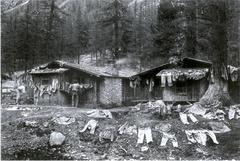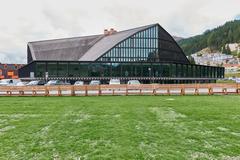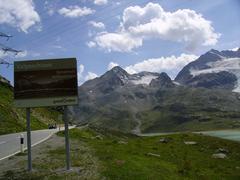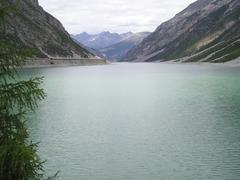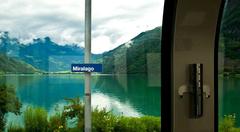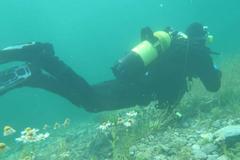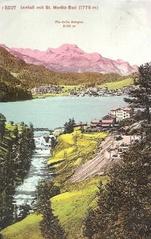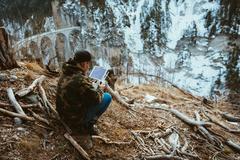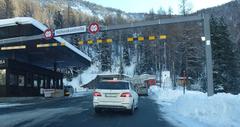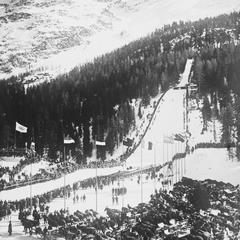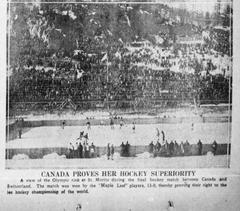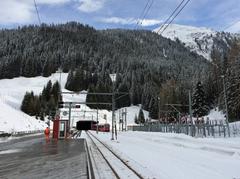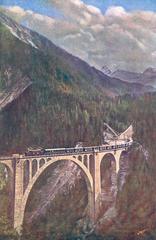
Alt Aspermont Castle Visiting Hours, Tickets, and History Guide in Canton of the Grisons, Switzerland
Date: 04/07/2025
Introduction
Alt Aspermont Castle, set within the dramatic landscapes of the Canton of the Grisons (Graubünden), Switzerland, is an enduring symbol of the region’s medieval past and multicultural heritage. Built in the 12th and 13th centuries by the prominent von Aspermont family, the castle once controlled vital Alpine trade routes from its commanding position above the Rhine Valley near Jenins and Trimmis. Today, its evocative ruins invite visitors to explore the intersection of history, architecture, and the distinct cultural traditions of Graubünden, where German, Romansh, and Italian influences meet.
The castle offers more than just historical intrigue—it is surrounded by panoramic vistas, hiking trails, and is close to other natural and cultural attractions. With open access year-round and no admission fee, Alt Aspermont Castle is ideal for history lovers, families, hikers, and anyone interested in the unique heritage of the Grisons. This guide provides comprehensive details on visiting hours, tickets, accessibility, travel tips, and nearby highlights to help you make the most of your visit.
Find official visitor information at the Graubünden Tourism website, the Official Grisons Tourism Website, and Together in Switzerland.
Table of Contents
- Introduction
- Historical Background
- Architectural Features and Site Layout
- Cultural and Historical Significance
- Visiting Alt Aspermont Castle: Hours, Tickets, and Accessibility
- Best Times to Visit
- Activities and Nearby Attractions
- Tips for a Memorable Visit
- Language and Communication
- Sustainable Tourism and Preservation
- Photography and Drone Use
- Emergency Information
- Frequently Asked Questions (FAQ)
- Plan Your Visit and Stay Connected
- Visuals and Media
- References and Further Reading
Historical Background
Alt Aspermont Castle was constructed in the late 12th century by the von Aspermont family, influential vassals of the Bishop of Chur who used the castle as both a residence and a defensive stronghold. Its elevated position at 768 meters above sea level provided strategic oversight of the Rhine Valley’s trade routes. Over the centuries, the castle witnessed feudal conflicts, political intrigue, and military occupation, including notable events during the Rhäzüns Feud and the Schamserfehde. In the 15th century, it served as an administrative center before declining after the reduction of the bishop’s secular power in the 16th century. By the 17th century, the castle had fallen into ruin, but its remains still powerfully evoke the region’s medieval history (Together in Switzerland).
Architectural Features and Site Layout
Alt Aspermont Castle’s ruins are characterized by robust medieval stonework and a strategic hilltop layout:
- Main Keep: The rectangular keep, partially intact, was the stronghold and last defensive refuge.
- Curtain Walls: Remnants of thick defensive walls and evidence of arrow slits and towers.
- Ancillary Structures: Foundations of living quarters, storage rooms, kitchens, and stables.
- Natural Defenses: Steep cliffs enhance the site’s natural protection and provide panoramic views over the Rhine Valley.
Interpretive signage (primarily in German and Romansh) is found at key points to help visitors understand the castle’s original layout and historical context.
Cultural and Historical Significance
Alt Aspermont Castle is intertwined with the region’s feudal history and the multicultural identity of the Grisons. It reflects the rise of noble families, the formation of the Grey Leagues, and the gradual integration of the canton into the Swiss Confederation. As the only Swiss canton where Romansh is an official language, the Grisons region’s cultural and linguistic diversity is celebrated in the preservation of sites like Alt Aspermont Castle (Together in Switzerland).
The castle also forms a backdrop for community events, festivals, and cultural celebrations, underscoring its ongoing relevance in local traditions.
Visiting Alt Aspermont Castle: Hours, Tickets, and Accessibility
Location and Accessibility
Alt Aspermont Castle is situated near the village of Jenins in the Landquart district. The site can be reached by:
- Car: Parking is available near Jenins; from there, follow marked hiking trails to the castle.
- Public Transport: Take a train to Landquart station, followed by local buses or taxis to Jenins. The approach involves a moderate hike over uneven terrain; sturdy footwear is recommended.
Visiting Hours and Admission Tickets
- Opening Hours: The castle ruins are open year-round and can be visited at any time during daylight hours. It is safest and most enjoyable to visit from 8:00 AM to sunset.
- Tickets: There is no admission fee or ticket required to visit Alt Aspermont Castle.
On-Site Facilities
- Facilities: There are no visitor centers, restrooms, or food vendors at the castle. Bring water and snacks; facilities can be found in Jenins.
- Accessibility: Due to uneven paths and steep terrain, the site is not wheelchair accessible.
Guided Tours and Interpretation
- Tours: Regular guided tours are not available at the castle itself, but local tourism offices occasionally offer historical walks that include Alt Aspermont. Informational plaques on-site provide historical context.
Safety and Accessibility Considerations
- Caution: Some areas around the ruins are exposed and lack safety barriers. Supervise children and avoid climbing on unstable structures.
- Pets: Dogs are permitted but must be kept on a leash.
Best Times to Visit
The optimal period for visiting Alt Aspermont Castle is from late spring to early autumn (May to October), when the weather is mild and the surrounding vineyards are in bloom. Summer offers longer daylight hours, while autumn features grape harvest festivals in Jenins and neighboring villages (Together in Switzerland).
Activities and Nearby Attractions
- Hiking: Numerous trails connect the castle to the vineyards of the Bündner Herrschaft region and to Maienfeld, the setting of “Heidi.”
- Wine Tasting: Jenins and its surroundings are renowned for Pinot Noir; many wineries offer tastings and tours.
- Historic Towns: Explore Jenins, Ilanz, and Chur, each offering museums, traditional architecture, and local cuisine.
- Nature Reserves: Parc Ela, Switzerland’s largest nature park, and other Swiss Parks are nearby for hiking and wildlife spotting.
Tips for a Memorable Visit
- Wear sturdy footwear and weather-appropriate clothing.
- Bring a camera for panoramic views, especially at sunset.
- Respect the site by not disturbing ruins or removing artifacts.
- Check local calendars for festivals or events to enrich your experience.
- Consider combining your visit with local wine tastings, hiking, or a trip to Maienfeld.
Language and Communication
German and Romansh are the primary languages, with Italian and English understood in most tourist-oriented settings. Interpretive signage is typically in German and Romansh, and most hospitality staff can converse in English (Together in Switzerland).
Sustainable Tourism and Preservation
Visitors are encouraged to:
- Practice “leave no trace” principles.
- Support local businesses and wineries.
- Use public transport when possible to reduce environmental impact (Travel by train, bus or boat).
- Help preserve the site by respecting the ruins and surrounding natural habitat (Together in Switzerland).
Photography and Drone Use
- Photography: The site offers outstanding photo opportunities, particularly during golden hour.
- Drones: Check local regulations before flying drones, as restrictions often apply near heritage sites.
Emergency Information
- Emergency Number: Dial 112 for emergencies.
- Local Contacts: Tourist information is available in Jenins and Landquart for assistance.
Frequently Asked Questions (FAQ)
Q: What are the visiting hours of Alt Aspermont Castle?
A: The castle is open-access and can be visited year-round during daylight hours.
Q: Is there an admission fee?
A: No, the site is free to visit.
Q: Are guided tours available?
A: There are no regular guided tours, but historical walks may be available through local tourism offices.
Q: Is the castle wheelchair accessible?
A: No, the terrain is uneven and not suitable for wheelchairs.
Q: Are restrooms or food vendors available at the site?
A: No, facilities are available in Jenins.
Q: When is the best time to visit?
A: May to October, when weather is best and local events are frequent.
Q: Is photography allowed?
A: Yes, photography is encouraged.
Plan Your Visit and Stay Connected
For the latest travel tips, event updates, and interactive resources, download the Audiala app. Explore maps, audio guides, and exclusive content about Graubünden’s historical sites. Follow us on social media for inspiration and share your experience with #AltAspermontVisit.
Visuals and Media
(Images are for illustrative purposes; refer to official sources for the most current visuals.)
Virtual tours and maps are available on the Switzerland Tourism website.
References & Further Reading
- Graubünden Tourism website
- Official Grisons Tourism Website
- Together in Switzerland
- Grisons Attractions
- Essential Information for Visiting Switzerland in Summer
- Switzerland Weather in July
- Alt Aspermont Castle Local Tourism Office
- Claudia Travels – 25 Little Known Things to Do in Grisons, Switzerland
- Swiss Castles and Palaces
- Swiss Parks
- Maienfeld – Heidi’s World

